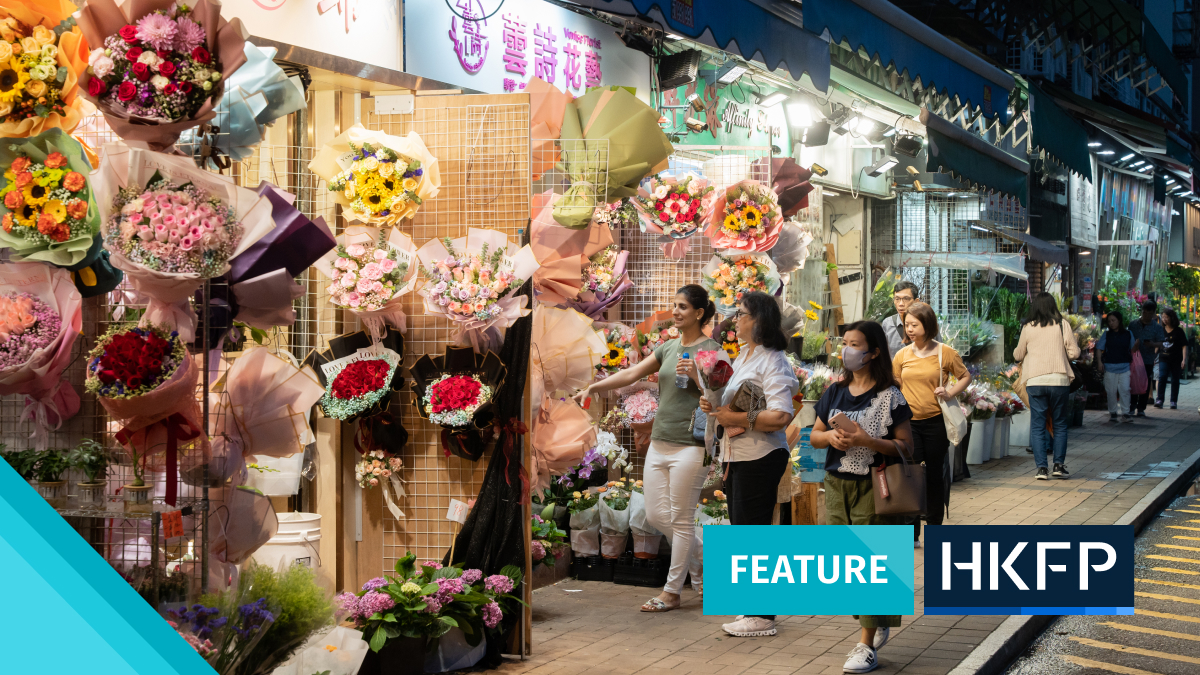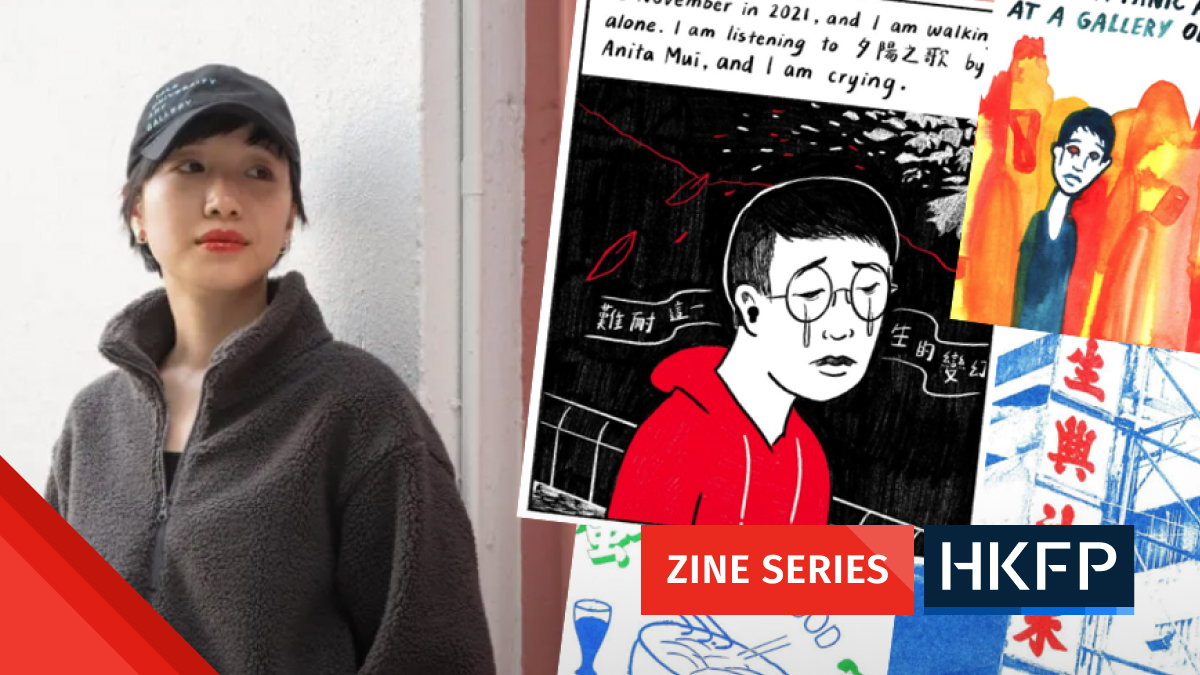On the Taiwanese island of Kinmen, 63-year-old Wu Tseng-dong – Maestro Wu as he brands himself – is beating swords into ploughshares, as the Bible teaches. Or to be exact, artillery shells into kitchen knives.

And until the beginning of last year, mainland Chinese bought them up in tremendous numbers: “There is a particular meaning to the mainland tourists,” Maestro Wu said, “in bringing back these instruments of peace that were once weapons of war.”
In February 2020, in the wake of the Covid-19 pandemic, Taiwan’s Mainland Affairs Council severed the “xiaosantong” or “three minor communications,” which had allowed direct commerce, travel, and mail service between the Chinese mainland and Kinmen.
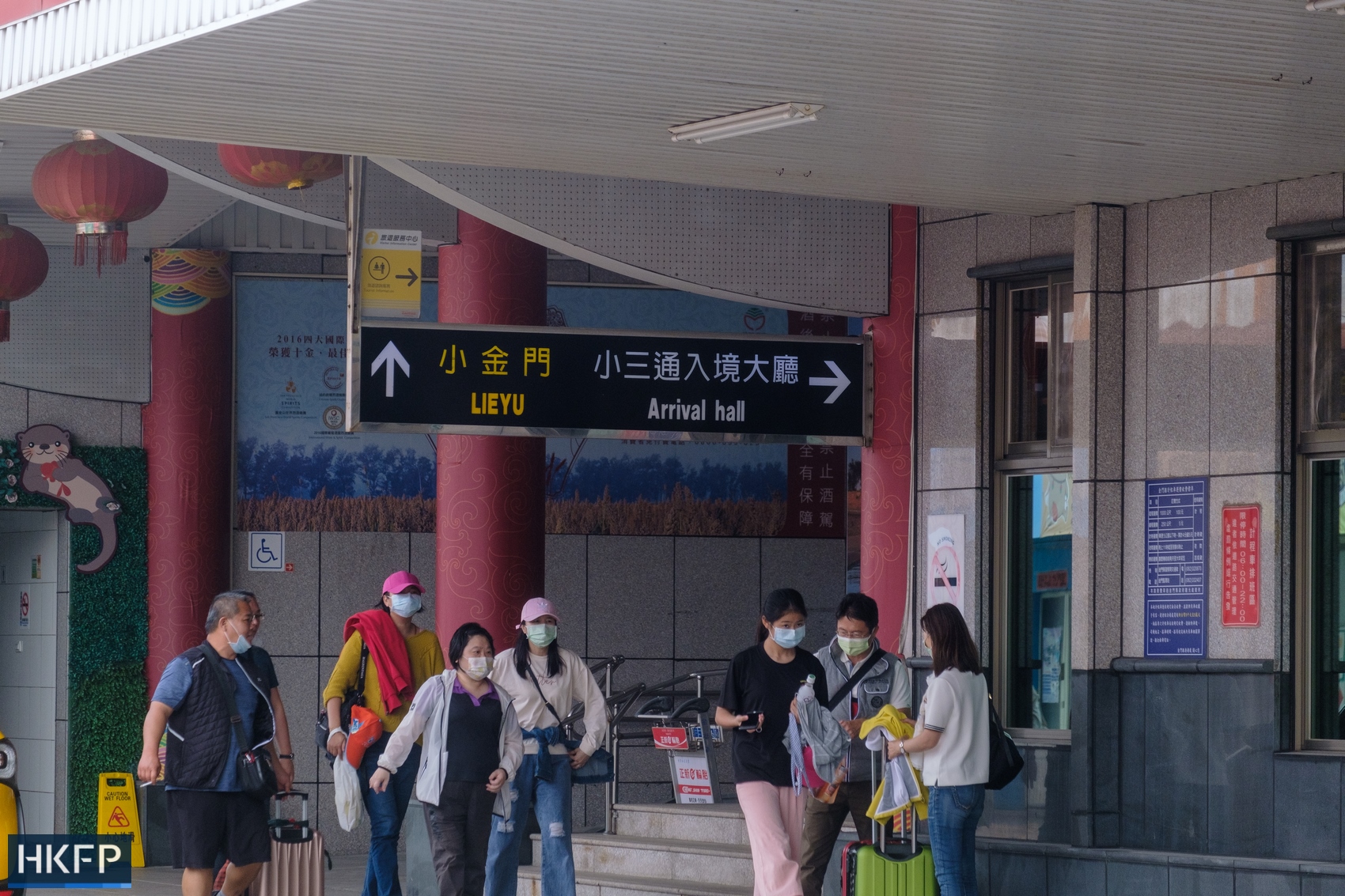
Nowadays, clerks at Everrich, a giant duty-free shop in the middle of the island catering to mainland tourists, pace empty sales floors. Standing in a deserted aisle, one employee tried to put on a brave face. “Tourists coming from Taiwan,” she said, “have filled the gap left by the mainlanders.”
“That’s a lie,” Wu Bo-Chang, a local politician, commented when hearing of the clerk’s response. “Since Chinese tourists are not allowed anymore, the tourism sector is suffering.”
Separated by the civil war
Much of what has been written about Kinmen has emphasised just how short the physical distance really is between the city of Xiamen, belonging to the People’s Republic of China (PRC), and Kinmen, which comes under the administration of Taiwan, still officially the Republic of China (ROC). At the nearest point, they’re only 1,800 metres apart and Taiwanese coast guard vessels jostle against PRC boats.
Given the political tensions between the two sides, the physical proximity can be at once surreal and hair-raising.

What often gets lost in the reporting is what that geography implies for the everyday lives of ordinary people. If the world were a rational place, then Kinmen would be a suburb of Xiamen, as indeed it was for centuries. Kinmen was once to Xiamen as Brooklyn is to Manhattan, as Greenwich is to London, as Versailles is to Paris. Residents of the one would have thought nothing of going to the other for some shopping, an outing, or to visit relatives.
On a fateful day in October of 1949, everything changed. The ROC army, emphatically losing the civil war against the Chinese Communist Party, retreated from Xiamen into Kinmen. Suddenly the invisible hand of politics drew a line across that narrow sea. On one side was now the ROC, and on the other the PRC.
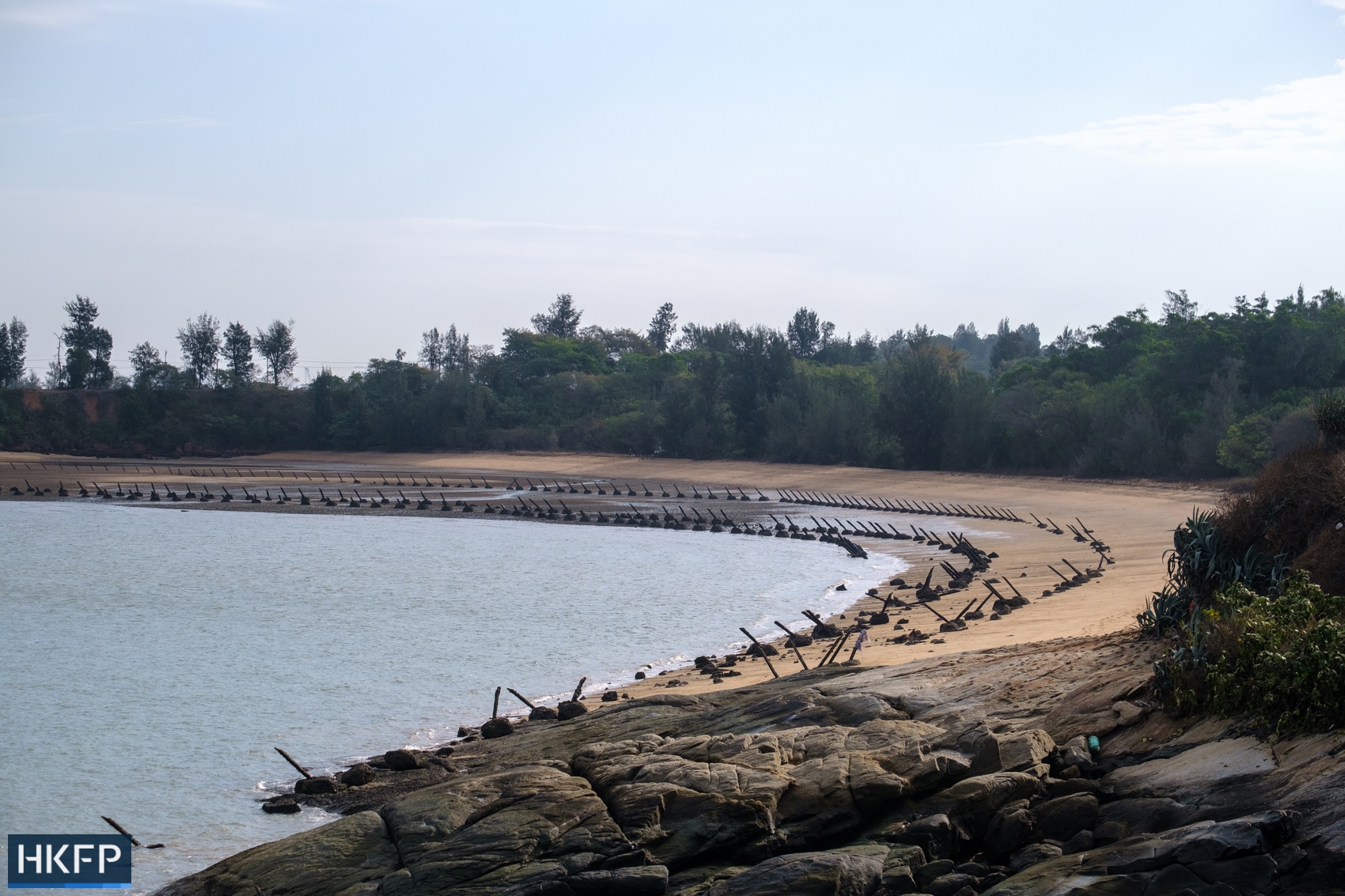
“Many Kinmen residents were caught on the other side in Xiamen,” recalled Tung Sen Po, a 43-year-old member of Kinmen’s county legislature, “and a number of Xiamen people were stuck here.” Neither would be able to go home for the next four decades.
For those long years, Kinmen (along with its counterpart farther north, the Matsu Islands) served as the ROC’s forward operating base. When tensions turned into a shooting war in August 1958, Kinmen – also known as the time as Quemoy – took the brunt of it and endured weeks of heavy artillery fire, followed by intermittent gunfire on odd-numbered days until the end of 1978. Those shells came from Kinmen’s erstwhile sibling just across the sea, Xiamen. And they left an indelible impression on the people of Kinmen. Maestro Wu, for one, who was seven months old when the shelling began, has spent his life repurposing the shells for the kitchen.
With the traditional Xiamen-Kinmen economic links severed by politics, the people of Kinmen found another source of income: the 100,000 troops that Taiwan’s dictator Chiang Kai-shek stationed there. Outnumbering the local residents twofold, the soldiers had their own special needs ranging from sex to alcohol.
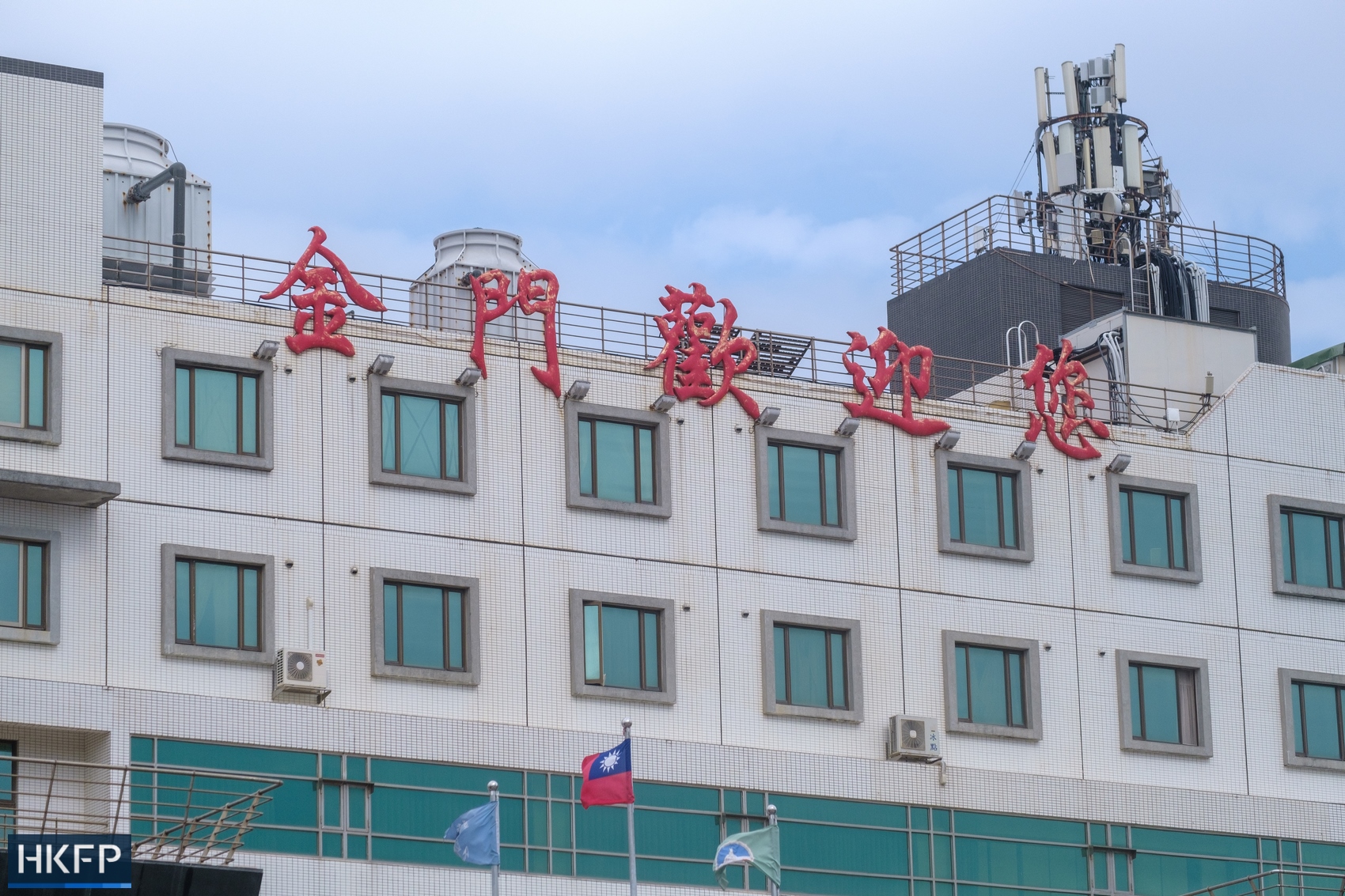
The government supplied the sex through military brothels euphemistically called “special appointment teahouses” or “Unit 831.” The alcohol came in the form of kaoliang, Kinmen’s signature liquor made from sorghum, which the ROC military authorities encouraged local farmers to grow. Kaoliang remains a popular liquor throughout Taiwan, brought back by returning soldiers, and the liquor business has helped to make Kinmen relatively rich.
But the troops also required myriad other goods and services. “The soldiers supported Kinmen’s economy,” said Tung. “For their daily needs, from purchasing personal items to eating a meal to doing their laundry, a lot of soldiers relied on local small businesses. You could easily have 12 or 13 such small businesses in a village.”
“You could actually make a lot of money by doing laundry at that time,” said Wu Bo-chang, who serves as secretary general of Kinmen’s Industrial Development and Investment Promotion Committee. “Kinmen’s economy totally relied on the troops’ money”.
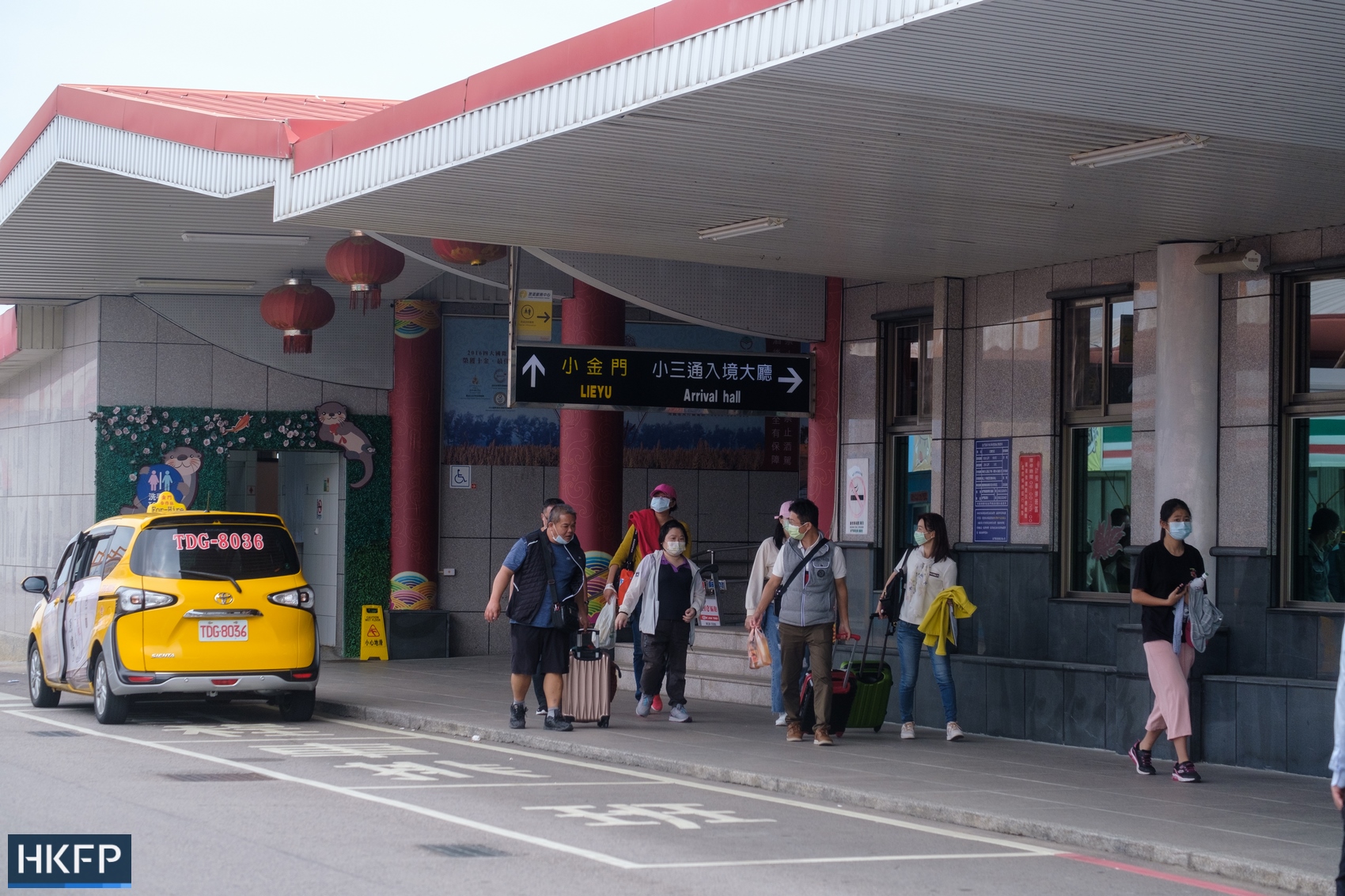
Another item that the soldiers couldn’t do without was a kitchen knife courtesy of a blacksmith like Maestro Wu or his father or grandfather before him. As a souvenir of their time on Kinmen, a conscript leaving the island was expected to bring home one of Kinmen’s famous kitchen knives.
“Soldiers going back to Taiwan would always pick up a knife,” Maestro Wu said. “It became so that if you didn’t get a knife, it felt like you didn’t serve on Kinmen.”
Much has changed since then. Martial law ended in Taiwan in 1987 and in Kinmen in 1992. Since then, the ROC has withdrawn most of its forces from these erstwhile forward operating bases. Only 3,000 or so soldiers remain on Kinmen today. Long gone are the days when conscripts lined up at the military brothels, at the local laundries, or at Maestro Wu’s shop for a kitchen knife to bring home.

In their absence, a new category of consumers stepped into the breach.
Reunited by warming relations
“The mainlanders kind of replaced the soldiers,” Maestro Wu explained. After the lifting of martial law, beginning in 1995 Kinmen began reorienting its economy toward tourism. But it was with the establishment of xiaosantong in 2001, followed by its expansion in 2008, that tourism here truly took off. Mainlanders were once again able to travel from Xiamen to Kinmen and back with ease.

Notably, instead of seeing all the sights in Kinmen, mainland visitors mainly came to shop, buying products ranging from pharmaceuticals and cosmetic products and baby formula to Maestro Wu’s knives.
“Mainlanders used to line up outside the Watsons and the Cosmed,” explained Peter Chang, 24, who works at a bed and breakfast in Kinmen. “They don’t have those stores at home,” and these types of products are reputedly safer and of higher quality in Hong Kong and Taiwan than those on the mainland. Originally from the city of Taichung, Chang studied at Xiamen University before choosing to live in Kinmen.

The xiaosantong policy was paused once before, for two months in 2003 due to SARS. This time, the interruption has lasted much longer and even now there is no end in sight.
The impact on Kinmen’s economy is palpable. The long lines of mainlanders waiting to make purchases at Kinmen’s shops are now a thing of the past.
“One mainlander is worth four Taiwanese in terms of how much they buy,” according to Wu of the Industrial Development and Investment Promotion Committee. “In February of last year, right after xiaosantong halted, I checked in at some specialty products stores. For some of them, their revenues had dropped by 100 percent.”

Maestro Wu estimates that his business is down by about fifty percent compared to before the end of xiaosantong. Chen Yunnan, the 89-year-old proprietor of a well-known fried dumplings restaurant, estimates that his business is down by about the same amount.
“The mainlanders used to come in groups organised by travel agencies,” he said. “We used to prepare more than 2,000 dumplings a day.” Not any more.
In the wake of the halt of xiaosantong, almost all visitors to Kinmen now are domestic travellers from the main island of Taiwan unable to go abroad due to the pandemic. But the experience they look for here is a far cry from the mainlanders’ shopping sprees: after all, plenty of Watsons and Cosmed locations line the streets of Taipei.
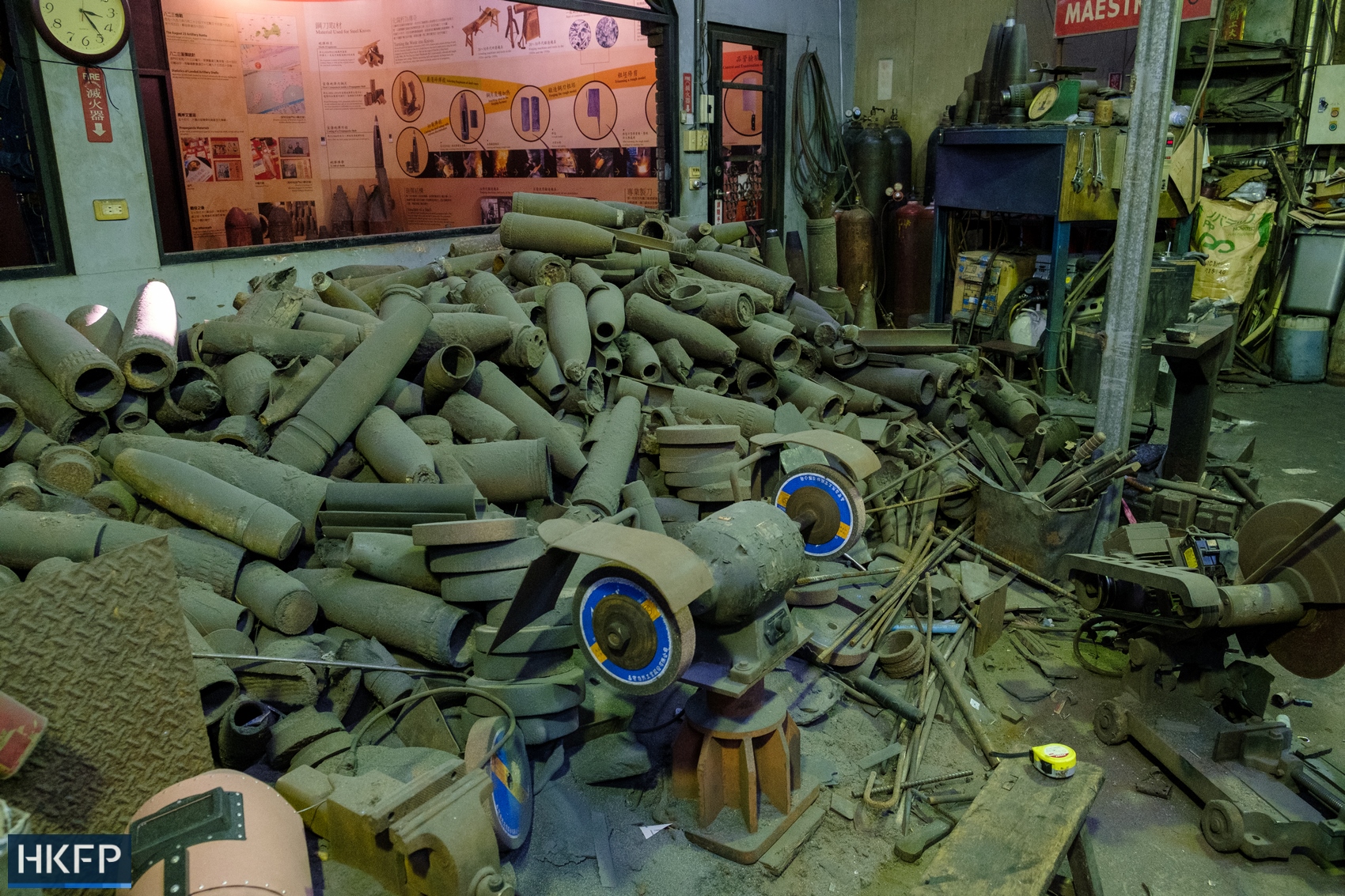
“Some feel that we need to transition again to cater to tourism from Taiwan instead of the mainland,” said Tung, the county legislator. “Some others believe that the pandemic will end soon enough, and we can go back to catering to mainland visitors.”
In reality, Kinmen is already transitioning to cater more to visitors from Taiwan. In the village of Yangzhai, Cui Siqi, 51, explained how the place has changed.
“In October 2020, to reorient toward Taiwanese tourism, the local authorities developed this street,” she said. The old street that Ms. Cui referred to where she runs a milk-tea shop was a location for the 2014 Taiwanese film Paradise in Service, which focused on ROC military service and the government-run brothels that came with it in the 1960s. Now the local government has refurbished the street to its full cinematic glory.
“Mainlanders aren’t interested in this,” Ms. Cui explained. “They didn’t see the movie.” She would know, being originally from Anhui province on the mainland before relocating to Kinmen because she married a Kinmen local.

The economic pivot is hitting those sectors that previously profited most from the mainland visitors, even if, in Tung’s estimation, the transition isn’t quite as painful as what occurred in the 1990s.
“Most of those mom-and-pop businesses in the villages disappeared with the departure of the bulk of the army,” Tung recalled. Today, the interruption of xiaosantong does not affect small businesses quite as much.
He welcomes the economic transition. “Who knows how long the pandemic will last?” he said. “If xiaosantong reopens but with a two-week quarantine imposed, then we’ll still only get very few visitors from the mainland.”
Besides, there are the political tensions to consider. In recent years, the PRC has made it a habit to send warplanes into Taiwan’s air defence identification zone (ADIZ) and Taiwan has increasingly seemed to march by the beat of its own drum.

“Just as Taiwan is caught between America and China,” said Tung, “so Kinmen is caught between China and Taiwan. What authorities in Beijing and Taipei choose to do affects us deeply, but there is little that we can do to affect what they decide to do.”
Indeed, in many ways Beijing can influence events in Kinmen even if the island officially answers to Taipei. Tung recalled the 2017 local referendum on whether to allow the establishment of a casino. Beijing strongly opposed such a move, being concerned that greater opportunities for residents of Xiamen and other nearby areas to gamble could lead to more corruption. In the end, Kinmen voters overwhelmingly rejected the proposal.
And, despite its proximity to mainland China, Kinmen is not immune to Taiwan’s political evolution toward independence. “Even with older people in Kinmen,” observed Yorke Wu, 37, a local activist and former aide to Tung, “I hear them increasingly referring to China as ‘they’ and meaning Taiwan when they say ‘we.’”

For all of these reasons, Tung worries for Kinmen’s future.
“Our situation is like chicken ribs,” he said, using an expression that originated in the Three Kingdoms era of Chinese history in the third century A.D. “It’s like something that has no taste if you eat it, and yet you feel wasteful if you throw it away.”
Even so, the people of Kinmen have demonstrated their resilience before, both during the 20 years of artillery fire and with the withdrawal of the ROC military. And some, at least, are already looking to the future, whatever their present difficulties.

Maestro Wu, for one, is expanding his factory and showroom in the township of Kinning to include a kitchen for demonstrations of just what his knives can do. One way or another, he is confident, visitors will return in their former numbers.
Perhaps Maestro Wu’s optimism is related to his ecumenical view of cross-strait tensions.
“In the end,” he said, “we’re all descendants of the Chinese race.”
Support HKFP | Policies & Ethics | Error/typo? | Contact Us | Newsletter | Transparency & Annual Report | Apps
Help safeguard press freedom & keep HKFP free for all readers by supporting our team

Original reporting on HKFP is backed by our monthly contributors.
Almost 1,000 monthly donors make HKFP possible. Each contributes an average of HK$200/month to support our award-winning original reporting, keeping the city’s only independent English-language outlet free-to-access for all. Three reasons to join us:
- 🔎 Transparent & efficient: As a non-profit, we are externally audited each year, publishing our income/outgoings annually, as the city’s most transparent news outlet.
- 🔒 Accurate & accountable: Our reporting is governed by a comprehensive Ethics Code. We are 100% independent, and not answerable to any tycoon, mainland owners or shareholders. Check out our latest Annual Report, and help support press freedom.
- 💰 It’s fast, secure & easy: We accept most payment methods – cancel anytime, and receive a free tote bag and pen if you contribute HK$150/month or more.
MORE Original Reporting
HKFP has an impartial stance, transparent funding, and balanced coverage guided by an Ethics Code and Corrections Policy.
Support press freedom & help us surpass 1,000 monthly Patrons: 100% independent, governed by an ethics code & not-for-profit.






